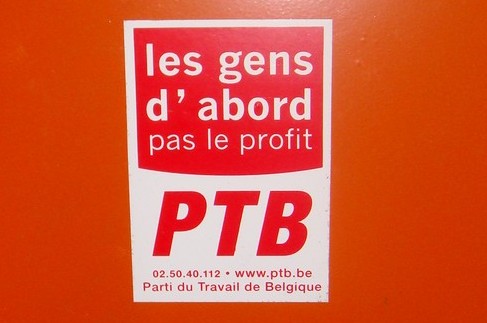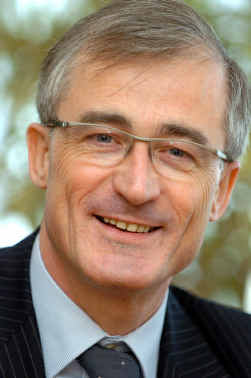|
2019 Belgian Federal Election
Federal elections were held in Belgium on 26 May 2019, alongside the country's European and regional elections. All 150 members of the Chamber of Representatives were elected from eleven multi-member constituencies. The far-right Vlaams Belang (VB) saw a resurgence in Flanders, and with the New Flemish Alliance (NVA), parties subscribing to Flemish separatism and nationalism obtained nearly 50% of the vote in Flanders. The Swedish coalition of N-VA, CD&V, MR and Open VLD lost more than a quarter of its seats, the worst government punishment in 20 years. In addition, gains for the far-left Workers' Party of Belgium (PVDA-PTB), and the green Ecolo party in Wallonia occurred. Overall, traditional parties suffered losses in both regions. Background Following the 2014 elections, a centre-right government consisting of N-VA, CD&V, Open Vld and MR was formed, led by Prime Minister Charles Michel (MR). The government coalition is unique in several aspects: the N-VA participates ... [...More Info...] [...Related Items...] OR: [Wikipedia] [Google] [Baidu] |
2014 Belgian Federal Election
Federal elections were held in Belgium on 25 May 2014. All 150 members of the Chamber of Representatives were elected, whereas the Senate was no longer directly elected following the 2011–2012 state reform. These were the first elections held under King Philippe's reign. Date As part of the state reform adopted 19 December 2013, the date of election will from now on coincide with the European elections,Proposal for a revision of the Belgian Constitution senate.be which the has scheduled for 22–25 May 2014. The |
Michel II Government
The Michel II Government was the Federal Government of Belgium, led by Prime Minister Charles Michel from 18 December 2018 until 27 October 2019 when it was succeeded by the Wilmès I Government. It was a centre minority coalition cabinet of Christian Democratic and Flemish (CD&V), the Open Flemish Liberals and Democrats (Open Vld) and the Reformist Movement (MR). On 26 October 2019, it was announced that Sophie Wilmès would take over the role of Prime Minister from Michel on 1 November 2019, and form a new government. History The government came into existence on 9 December 2018 following the exit of New Flemish Alliance (N-VA) from the Michel I Government. As the Prime Minister did not offer the government's resignation to the King until the 18th, it is constitutionally still the same government as the one that started in 2014, albeit a heavily reshuffled government following the resignation of all N-VA ministers and secretaries of state. Politically, however, it is in an ... [...More Info...] [...Related Items...] OR: [Wikipedia] [Google] [Baidu] |
Wallonia
Wallonia (; french: Wallonie ), or ; nl, Wallonië ; wa, Waloneye or officially the Walloon Region (french: link=no, Région wallonne),; nl, link=no, Waals gewest; wa, link=no, Redjon walone is one of the three regions of Belgium—along with Flanders and Brussels. Covering the southern portion of the country, Wallonia is primarily French-speaking. It accounts for 55% of Belgium's territory, but only a third of its population. The Walloon Region and the French Community of Belgium, which is the political entity responsible for matters related mainly to culture and education, are independent concepts, because the French Community of Belgium encompasses both Wallonia and the bilingual Brussels-Capital Region. There is a German-speaking minority in eastern Wallonia, resulting from the annexation of three cantons previously part of the German Empire at the conclusion of World War I. This community represents less than 1% of the Belgian population. It forms the German ... [...More Info...] [...Related Items...] OR: [Wikipedia] [Google] [Baidu] |
Ecolo
Ecolo, officially Écologistes Confédérés pour l'organisation de luttes originales'', (English: Confederate Ecologists for the Organisation of Original Struggles)'' is a French-speaking political party in Belgium based on green politics. The party is active in Wallonia, the Brussels-Capital Region, and the German-speaking Community of Belgium. Ecolo's Flemish equivalent is Groen; the two parties maintain close relations with each other. Name Ecolo is officially a backronym for ''Écologistes Confédérés pour l'organisation de luttes originales'' "Confederated Ecologists for the Organisation of Original Struggles", but is really just short for ''écologistes'', French for environmentalists. History Ecolo was part of the 1999 Verhofstadt I Government, but withdrew from the coalition before the 2003 general election, which saw it lose nearly two thirds of its 14 federal parliamentary seats in the face of a resurgent Socialist Party. The party made quite a comeback, howev ... [...More Info...] [...Related Items...] OR: [Wikipedia] [Google] [Baidu] |
Workers' Party Of Belgium
The Workers' Party of Belgium (french: Parti du Travail de Belgique, PTB; nl, Partij van de Arbeid van België, PVDA; ) is a Marxist and socialist political party in Belgium. It is one of the few Belgian parties that is a fully national party, representing both Flanders and Wallonia. Having traditionally been a small party, the PTB-PVDA has gained momentum since the 2010s, continuously scoring better at the polls and elections, particularly in Wallonia and working-class communities in Brussels. History The Workers' Party of Belgium originated in the student movement at the end of the 1960s. Students (organized in the student union ''SVB'' - ''Studenten VakBeweging''), mainly from the Catholic University of Leuven, turned towards the working-class movement. They considered the politics of the existing Communist Party of Belgium revisionist, i.e. too much turned toward social-democratic politics (represented in Belgium by the Belgian Socialist Party). They were influenced by ... [...More Info...] [...Related Items...] OR: [Wikipedia] [Google] [Baidu] |
Apache
The Apache () are a group of culturally related Native American tribes in the Southwestern United States, which include the Chiricahua, Jicarilla, Lipan, Mescalero, Mimbreño, Ndendahe (Bedonkohe or Mogollon and Nednhi or Carrizaleño and Janero), Salinero, Plains (Kataka or Semat or " Kiowa-Apache") and Western Apache ( Aravaipa, Pinaleño, Coyotero, Tonto). Distant cousins of the Apache are the Navajo, with whom they share the Southern Athabaskan languages. There are Apache communities in Oklahoma and Texas, and reservations in Arizona and New Mexico. Apache people have moved throughout the United States and elsewhere, including urban centers. The Apache Nations are politically autonomous, speak several different languages, and have distinct cultures. Historically, the Apache homelands have consisted of high mountains, sheltered and watered valleys, deep canyons, deserts, and the southern Great Plains, including areas in what is now Eastern Arizona, Norther ... [...More Info...] [...Related Items...] OR: [Wikipedia] [Google] [Baidu] |
Flemish Nationalism
The Flemish Movement ( nl, Vlaamse Beweging) is an umbrella term which encompasses various political groups in the Belgian region of Flanders and, less commonly, in French Flanders. Ideologically, it encompasses groups which have sought to promote Flemish culture and Dutch language as well as those who have sought greater political autonomy for Flanders within Belgium. It also encompasses nationalists who have sought the secession of Flanders from Belgium, either through outright independence or unification with the Netherlands. In the 19th century, the Flemish Movement emerged around a form of cultural patriotism which celebrated Flemish traditions and history and sought equal status for Dutch in the Belgian nation-state, often under the auspices of the Catholic Church. Although gaining many of its initial objectives, it became increasingly radical in the aftermath of World War I. Inspired by authoritarian and fascist politics, it was widely discredited for its association w ... [...More Info...] [...Related Items...] OR: [Wikipedia] [Google] [Baidu] |
Flemish Separatism
The Flemish Movement ( nl, Vlaamse Beweging) is an umbrella term which encompasses various political groups in the Belgian region of Flanders and, less commonly, in French Flanders. Ideologically, it encompasses groups which have sought to promote Flemish culture and Dutch language as well as those who have sought greater political autonomy for Flanders within Belgium. It also encompasses nationalists who have sought the secession of Flanders from Belgium, either through outright independence or unification with the Netherlands. In the 19th century, the Flemish Movement emerged around a form of cultural patriotism which celebrated Flemish traditions and history and sought equal status for Dutch in the Belgian nation-state, often under the auspices of the Catholic Church. Although gaining many of its initial objectives, it became increasingly radical in the aftermath of World War I. Inspired by authoritarian and fascist politics, it was widely discredited for its associa ... [...More Info...] [...Related Items...] OR: [Wikipedia] [Google] [Baidu] |
New Flemish Alliance
The New Flemish Alliance ( nl, Nieuw-Vlaamse Alliantie, N-VA) is a Flemish nationalist and conservative political party in Belgium. The party was founded in 2001 by the right-leaning fraction of the centrist-nationalist People's Union (VU). The N-VA is a regionalist and separatist movement that self-identifies with the promotion of civic nationalism.Manifesto of the New Flemish Alliance point 13: "Inclusion for newcomers" (in Dutch). It is considered part of the Flemish Movement; the party strives for the peaceful [...More Info...] [...Related Items...] OR: [Wikipedia] [Google] [Baidu] |
Flanders
Flanders (, ; Dutch: ''Vlaanderen'' ) is the Flemish-speaking northern portion of Belgium and one of the communities, regions and language areas of Belgium. However, there are several overlapping definitions, including ones related to culture, language, politics, and history, and sometimes involving neighbouring countries. The demonym associated with Flanders is Fleming, while the corresponding adjective is Flemish. The official capital of Flanders is the City of Brussels, although the Brussels-Capital Region that includes it has an independent regional government. The powers of the government of Flanders consist, among others, of economic affairs in the Flemish Region and the community aspects of Flanders life in Brussels, such as Flemish culture and education. Geographically, Flanders is mainly flat, and has a small section of coast on the North Sea. It borders the French department of Nord to the south-west near the coast, the Dutch provinces of Zeeland, North Br ... [...More Info...] [...Related Items...] OR: [Wikipedia] [Google] [Baidu] |
Vlaams Belang
, ideology = , predecessor = Vlaams Blok , position = , europarl = Identity and Democracy , european = Identity and Democracy Party , youth_wing = Vlaams Belang Jongeren , colours = , headquarters = Madouplein 8 bus 91210 Brussels , website www.vlaamsbelang.org, seats1_title = Chamber of Representatives , seats1 = , seats2_title = Senate , seats2 = , seats3_title = Flemish Parliament , seats3 = , seats4_title = Brussels Parliament , seats4 = , seats5_title = European Parliament , seats5 = , seats6_title = Flemish Provincial Councils , seats6 = , flag = Vlaams Belang (, , VB) is a Flemish nationalist, anti immigration, right-wing populist political party in the Flemish Region and Brussels Capital Region of Belgium. Vlaams Belang is a rebrand of Vlaams Blok, which dissolved aft ... [...More Info...] [...Related Items...] OR: [Wikipedia] [Google] [Baidu] |
2019 Belgian Regional Elections
The 2019 Belgian regional elections took place on Sunday 26 May, the same day as the 2019 European Parliament election as well as the Belgian federal election. In the regional elections, new representatives were chosen for the Flemish Parliament, Walloon Parliament, Brussels Parliament and the Parliament of the German-speaking Community. The Parliament of the French Community was composed of all elected members of the Walloon Parliament (except German-speaking members) and 19 of the French-speaking members of the Brussels Parliament. The elections followed the 2014 elections and were shortly after the 2018 local elections, which indicated voters' tendencies after an unusually long period of time without any elections in Belgium. Electoral system The regional parliaments have limited power over their own election; federal law largely regulates this and the federal government organises the elections, which occur per Article 117 of the Constitution on the same day as the European ... [...More Info...] [...Related Items...] OR: [Wikipedia] [Google] [Baidu] |





